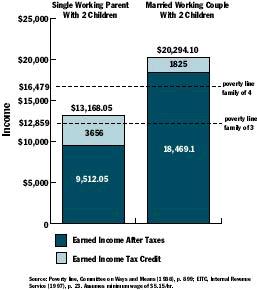
Teen Pregnancy and Welfare: A Complex and Controversial Issue
Introduction
Teen pregnancy remains a significant social and economic concern in the United States, with far-reaching consequences for both the young mothers and their children. The issue is particularly intertwined with the welfare system, which provides financial assistance to low-income families. This article will explore the complex relationship between teen pregnancy and welfare, examining the causes, consequences, and policy implications of this intersection.
Causes of Teen Pregnancy
The causes of teen pregnancy are multifaceted and include a combination of biological, social, and economic factors.
- Biological Factors: Teenagers experience hormonal changes that make them more likely to become pregnant. Additionally, early sexual initiation and lack of access to contraception contribute to the risk of pregnancy.
- Social Factors: Poverty, lack of education, and peer pressure are all associated with increased rates of teen pregnancy. Young people who grow up in disadvantaged communities may have limited access to healthcare, sex education, and support systems.
- Economic Factors: Economic hardship can make it difficult for teens to access contraception and other resources that can prevent pregnancy. They may also be more likely to engage in risky sexual behaviors as a way to escape poverty or gain attention.
Consequences of Teen Pregnancy
Teen pregnancy has significant consequences for both the young mothers and their children.
- Health Risks: Teen mothers are at increased risk for pregnancy complications, such as premature birth, low birth weight, and infant mortality. Their children are also more likely to experience health problems, including developmental delays and chronic diseases.
- Educational and Economic Challenges: Teen mothers are more likely to drop out of school and have lower educational attainment than their peers. This can limit their employment opportunities and earning potential, leading to long-term economic hardship.
- Social Stigma: Teen pregnancy is often met with social stigma and judgment, which can further isolate and marginalize young mothers. This can make it difficult for them to access support and resources.
Welfare and Teen Pregnancy
The welfare system plays a complex role in teen pregnancy. On the one hand, it provides financial assistance to low-income families, which can help to reduce the economic burden of having a child. On the other hand, some argue that welfare creates a disincentive to work and can perpetuate a cycle of poverty.
- Benefits of Welfare: Welfare benefits can provide essential support for teen mothers and their children, including food, housing, and healthcare. This can help to improve their health outcomes and reduce the risk of poverty.
- Potential Drawbacks: Some critics argue that welfare benefits can create a disincentive to work, as young mothers may be less likely to pursue education or employment if they are receiving assistance. However, research has shown that this is not always the case.
- Policy Implications: The relationship between welfare and teen pregnancy is a complex one that requires careful policy considerations. Policymakers must balance the need to provide support for young mothers and their children with the goal of promoting self-sufficiency and economic mobility.
Addressing Teen Pregnancy and Welfare
Addressing teen pregnancy and welfare requires a comprehensive approach that includes prevention, support, and policy reform.
- Prevention: Prevention efforts should focus on providing comprehensive sex education, increasing access to contraception, and addressing the underlying social and economic factors that contribute to teen pregnancy.
- Support: Young mothers need access to a range of support services, including healthcare, childcare, education, and job training. These services can help them to overcome the challenges of parenting and achieve their goals.
- Policy Reform: Policymakers should consider reforms to the welfare system that provide incentives for work and education while also ensuring that young mothers and their children have access to essential support.
Conclusion
Teen pregnancy and welfare are complex and interconnected issues that have significant implications for the lives of young mothers and their children. Addressing these issues requires a multifaceted approach that includes prevention, support, and policy reform. By working together, we can create a society where all young people have the opportunity to reach their full potential, regardless of their circumstances.